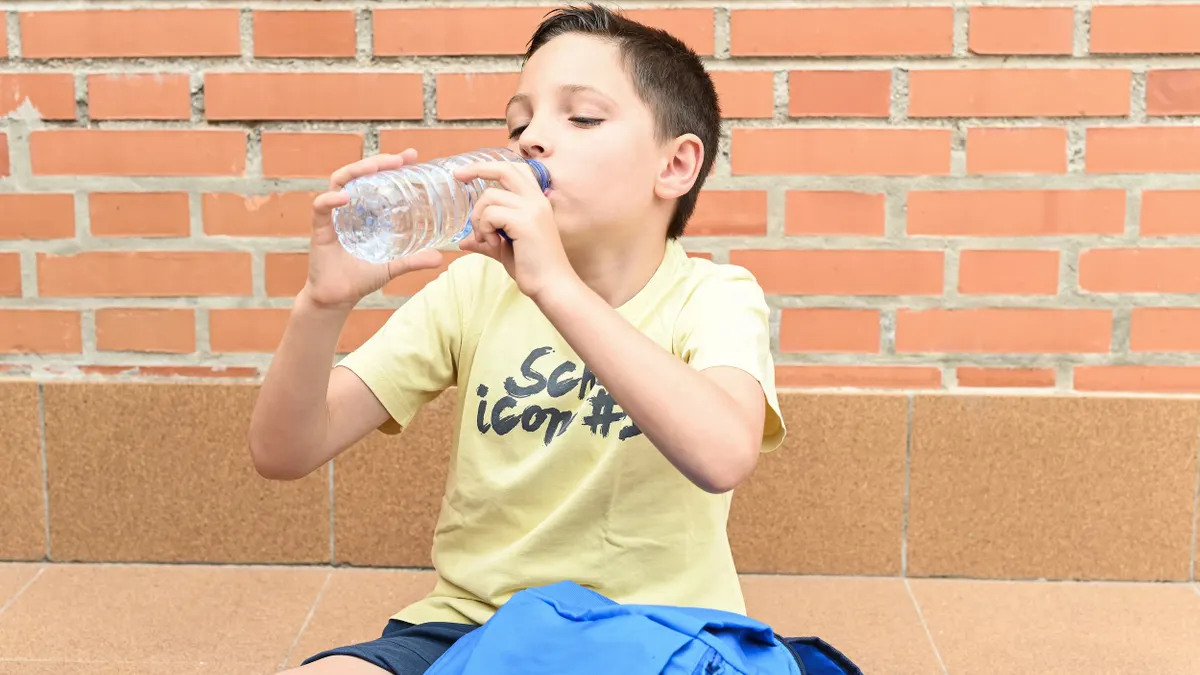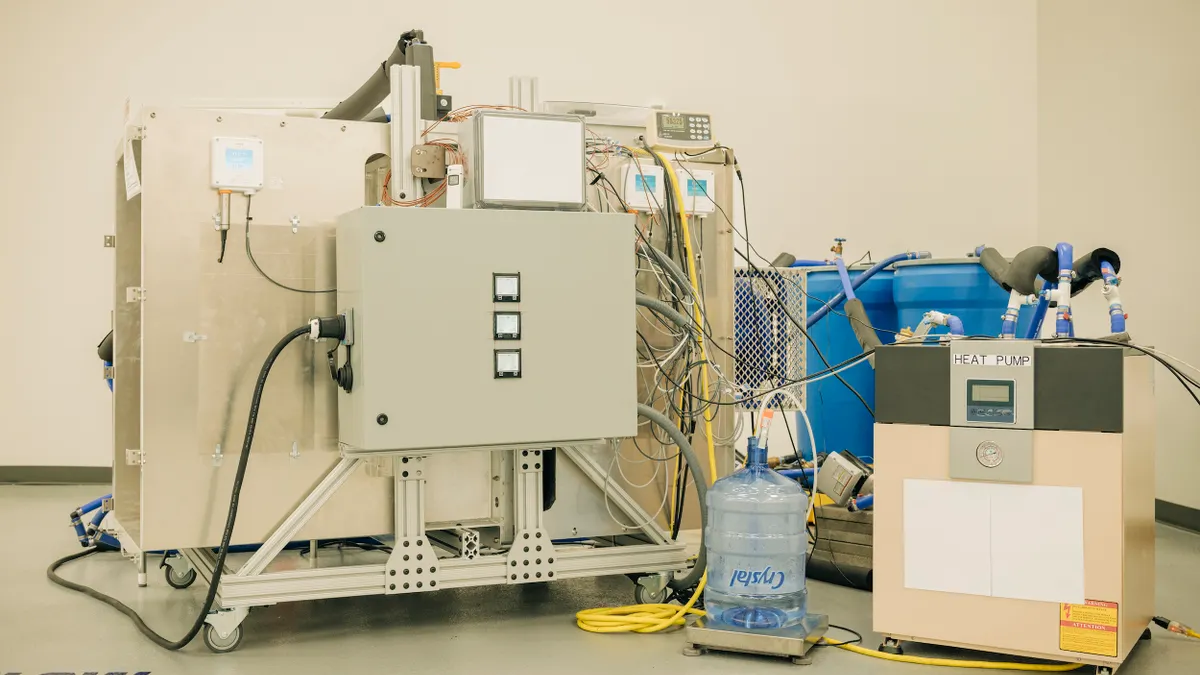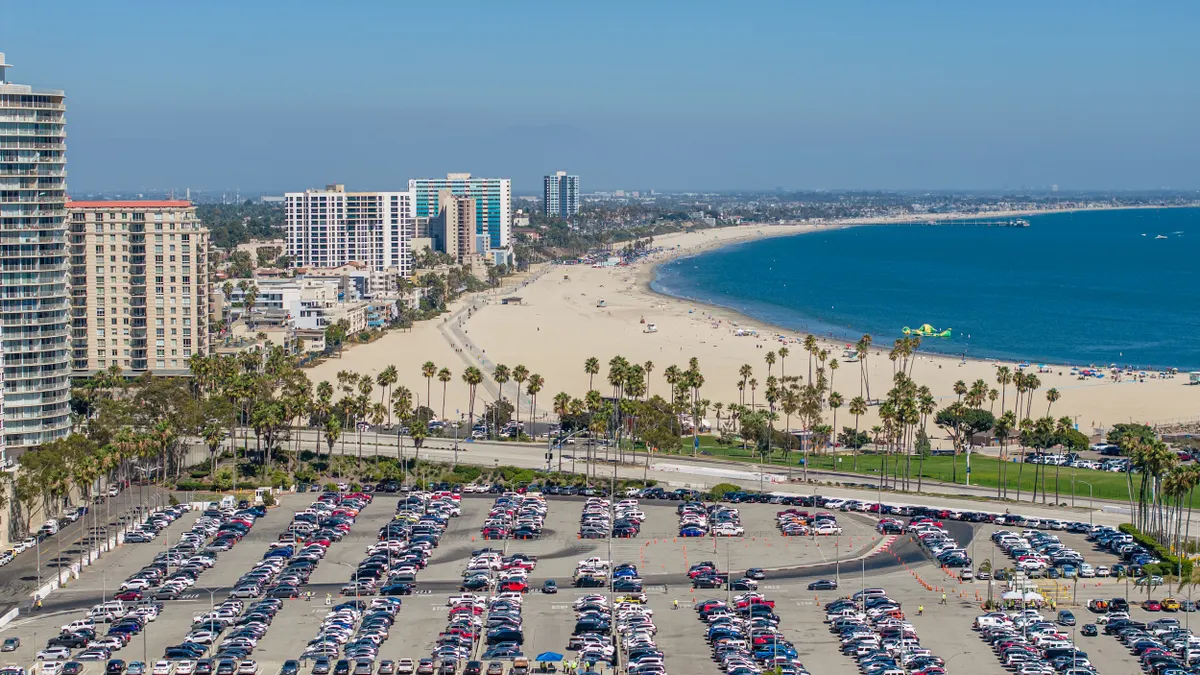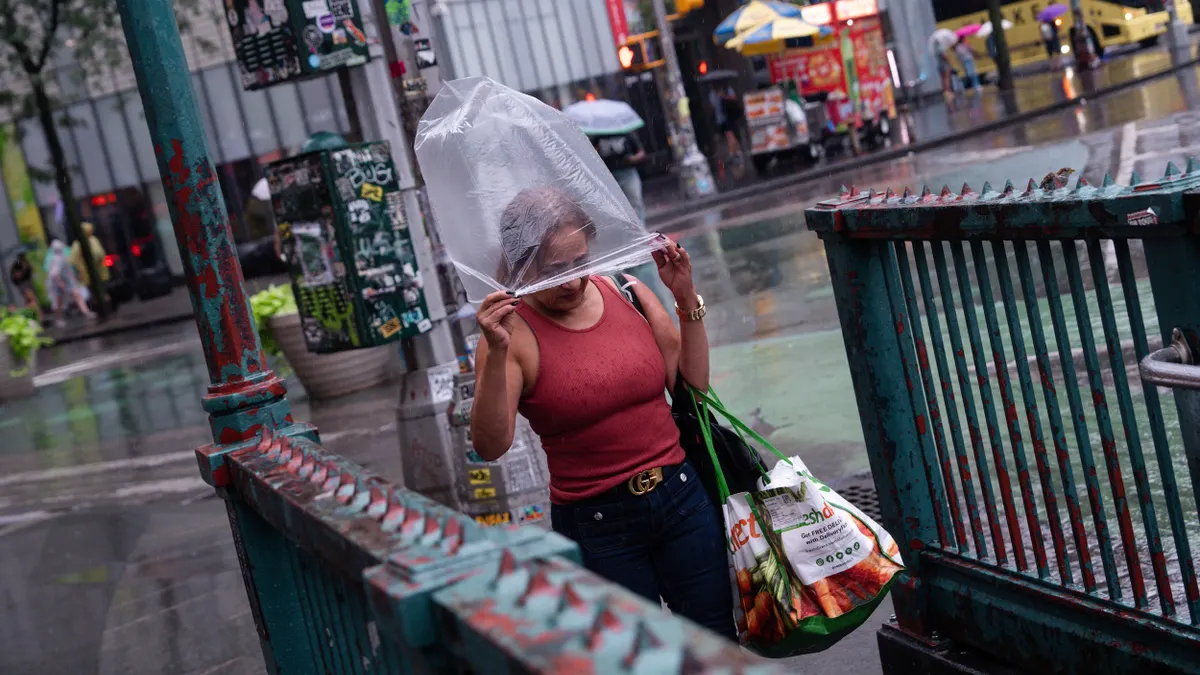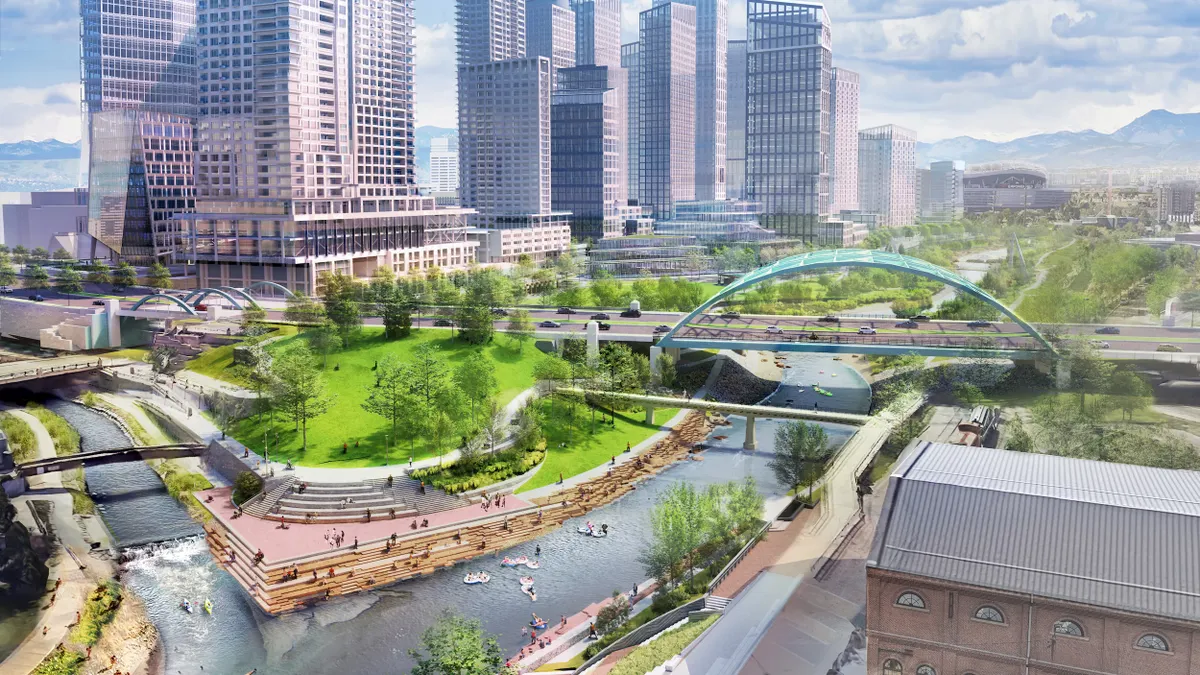In a packed hearing room Tuesday, members of the Baltimore City Council's Judiciary and Legislative Investigations Committee heard testimony from industry advocates, community leaders and schoolchildren, all there to speak in favor of or against a proposed ban on disposable polystyrene foam products in the city.
Council Bill 17-0117, first introduced in mid-September 2017, would impose a penalty of up to $1,000 on any food service facility that uses "disposable food service ware" made from polystyrene foam.
"It's important for us to be better stewards of the environment," council member and sponsor of the bill John Bullock said. "We also recognize the difficulties in recycling polystyrene."
Baltimore currently offers curbside residential recycling through a municipal program. It's single-stream, but the city does not distribute recycling bins for free and recyclables cannot be in plastic bags.
Not accepted in the single-stream are foam containers or takeout food containers. Commercial entities arrange their own waste collection and recycling. A substantial amount of Baltimore's waste is taken to an incinerator downtown, and recyclables are sorted at a MRF in Baltimore County.
The public hearing came after a small rally outside of Baltimore City Hall, where those in favor of the ban gathered to show their support. Many went straight from the rally to testify at, or at least watch, the open hearing.
As written, the bill would take affect 90 days after it is enacted. The current text also does not provide for any exemptions — both of which are small points of contention in the city government.
Lisa McNeilly, director of the Office of Sustainability in Baltimore, said in written testimony the city should consider amending the bill to allow a longer phase-in period or waivers for local businesses which could be especially hurt by the bill. These efforts could deal with "the cost issues that were raised," McNeilly said during the committee hearing.
In written testimony, the president of the Baltimore Development Corporation advocated for an 18-month phase-in period, rather than a 90-day period.
Other suggested amendments to the bill included a more formal definition of "polystyrene products" and what products would or would not be included — such as whether a grocery store in the city would be able to sell produce or meat on a foam tray, for example.
After Tuesday's hearing, the bill will be discussed at the next council working session where amendments could be added and the committee will vote on whether to move the bill to full council. The next full council meeting is scheduled for Feb. 26.
"I'm feeling pretty good about the full council," Bullock told Waste Dive in an interview. He said it was great having support from other council members and Council President Bernard C. "Jack" Young. "I think we're looking pretty good."
Why Baltimore
Proponents of the ban say it will help clean up city streets and protect human health and the environment. This is seen as especially relevant in a city where advocates have frequently fought to shut down operations at a local waste-to-energy facility operated by Wheelabrator.
Additionally, Charm City has a bit of a litter problem. While municipal trash cans have helped cut down on the problem, it is not uncommon in the city to see overflowing trash bins or municipal waste on the streets and in alleys.
The state's latest waste characterization study estimates that, out of an aggregate 3.7 million tons of waste, expanded polystyrene in the state accounted for 31,046 tons. The statewide data does not include breakdowns by different jurisdictions, but the Waterfront Partnership of Baltimore, which operates the internet-famous Mr. Trash Wheel and Professor Trash Wheel, does publish the data it collects about what kind of litter the water wheels scoop up.
According to those latest numbers, the trash wheels in Baltimore's inner harbor have collected 623,347 polystyrene containers — the most of any other litter category, second only to cigarette butts.
"And it costs us money," said Adam Lindquist, director of the Healthy Harbor Initiative, during his testimony. "It's the Baltimore business community that is funding Mr. Trash Wheel to pull that Styrofoam out of the Baltimore Harbor."
The city would join Montgomery County and Prince George's County as Maryland jurisdictions with restrictions on polystyrene products. Legislators have also introduced a statewide ban on EPS, with a hearing scheduled for Feb. 21 in Annapolis.
On the other hand...
Several stood up and spoke during the hearing against the proposed ban, largely arguing that it would be an economic burden if they had to switch to products made of compostable or other recyclable material.
Melvin Thompson, speaking on behalf of the Restaurant Association of Maryland, said the ban would hurt its members, who are already operating on thin profit margins.
He also raised the point that Baltimore doesn't have large-scale capacity for composting. Even if a material were compostable, it would likely end up in a landfill or the Wheelabrator incinerator downtown.
"[I]t makes absolutely no sense to make these businesses spend much more on alternatives that will largely end up in the same incinerator or landfill," Thompson said. "It's just money in the garbage."
Other industry interests, like Dart Container Corporation and The Plastics Foodservice Packaging Group (PFPG), also testified in opposition to the ban, uniting the restaurant industry with polystyrene manufacturers.
"Our goal is to make sure all the information about our products is out there," Mike Levy of the PFPG said during his testimony. He said people confused the health risks associated with styrene with polystyrene foam. He also said that product bans "don't solve the litter problem."
These two middle school girls talking to a nearly silent hearing room right now about environmental impacts of polystyrene. pic.twitter.com/MAw7AAd7FD
— Cody Boteler (@codyboteler) February 6, 2018
However, given the apparent support from members of the council, the frequently-referenced health concerns with the use of polystyrene products and the environmental concerns raised by many community members — including schoolchildren — it seems likely the committee will move the bill to the full council.
What's next?
The next full council meeting is scheduled for Feb. 26, which is the earliest the Baltimore City Council could vote on the proposal. Before then, it will likely be amended before making it out of committee.
Bullock told Waste Dive he was receptive to some concerns about the timeline for implementation and said he was open to seeing some "clarifying language" added to the bill.
And, while he said he wasn't convinced by industry arguments against a ban, there was at least one point Bullock and industry representatives agreed on.
"I'll say this: Some of the folks on the industry side did make a point to the lack of infrastructure," Bullock said, and the city should look into that issue as it relates to compost.









